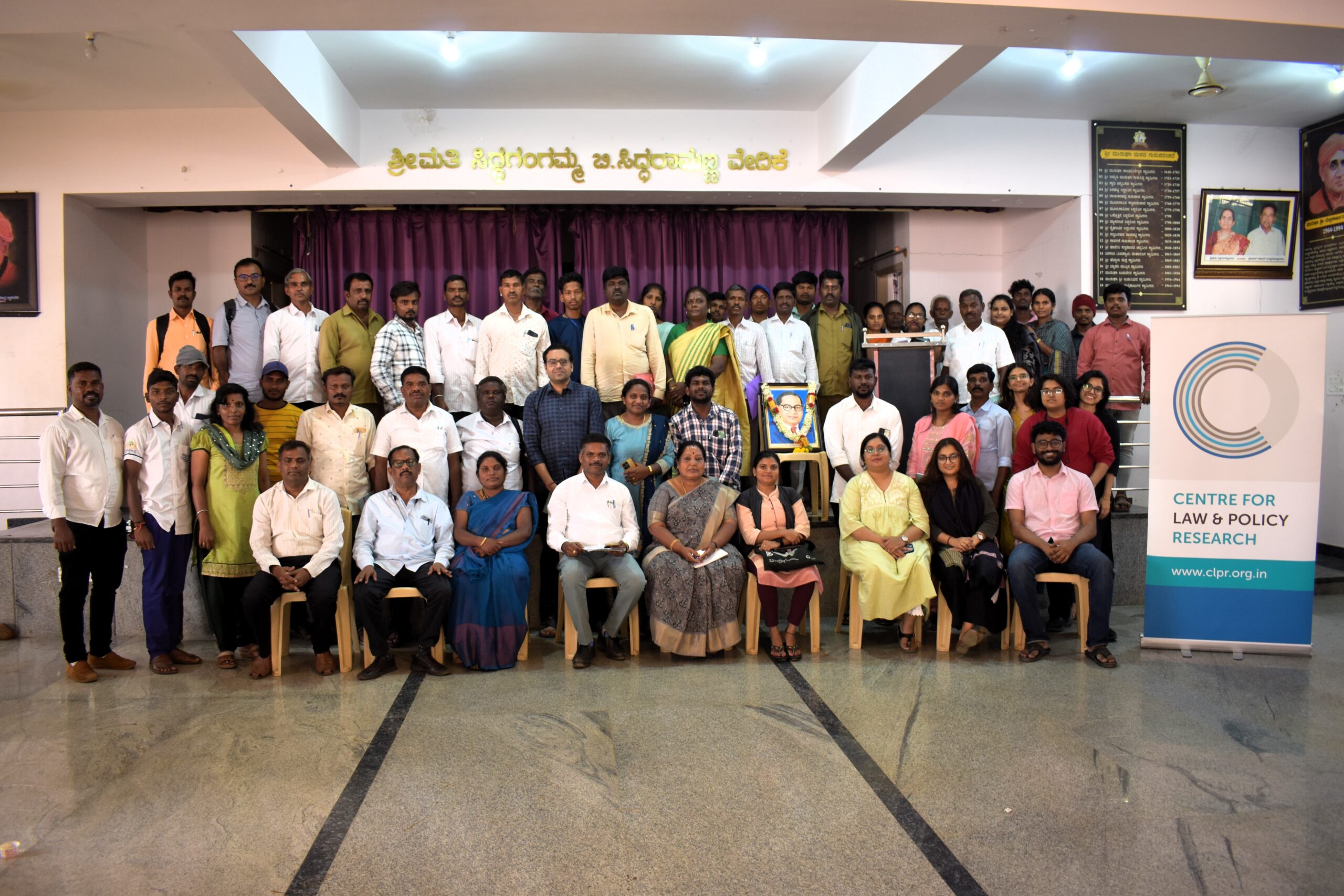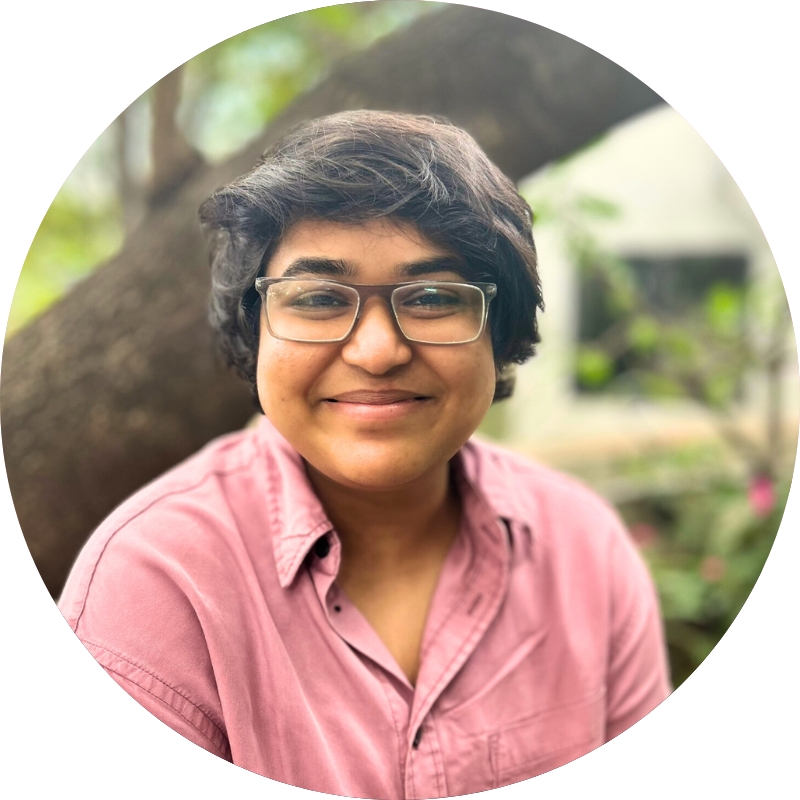Centre for Law & Policy Research (CLPR), in collaboration with Thamate, organized a “Know Your Rights and Entitlements” (KYRE) session on December 24, 2024, inviting social activists and members of the marginalised caste communites to discuss the issue of increased instances of caste atrocities. The discussions were facilitated by Mr. Siddharth K J., Social Activist & PoA Expert, Dr. Chandrashekhar R.V., Assistant Professor at NLSIU & Social Activist, and Ms. Padma M., Member of State Monitoring Committee of PEMSRA Act, Government of Karnataka.
The day’s discussion began with a welcome note by Adv. Shobha, a constitution defender of CLPR, who also outlined the event schedule which included introductions of speakers, session on the Scheduled Castes and the Scheduled Tribes (Prevention of Atrocities) Act, 1989 (“1989 PoA Act”), Prohibition of Employment as Manual Scavengers and their Rehabilitation Act, 2013 (“PEMSRA 2013”) and on caste and manual scavenging. Each session was followed by open discussions for the participants to draw from their experiences to engage the speakers with issues they face in realising their rights and entitlements. The welcome note was followed by ‘Horatta geete’ (songs of resistance) sang by associates of Thamate.
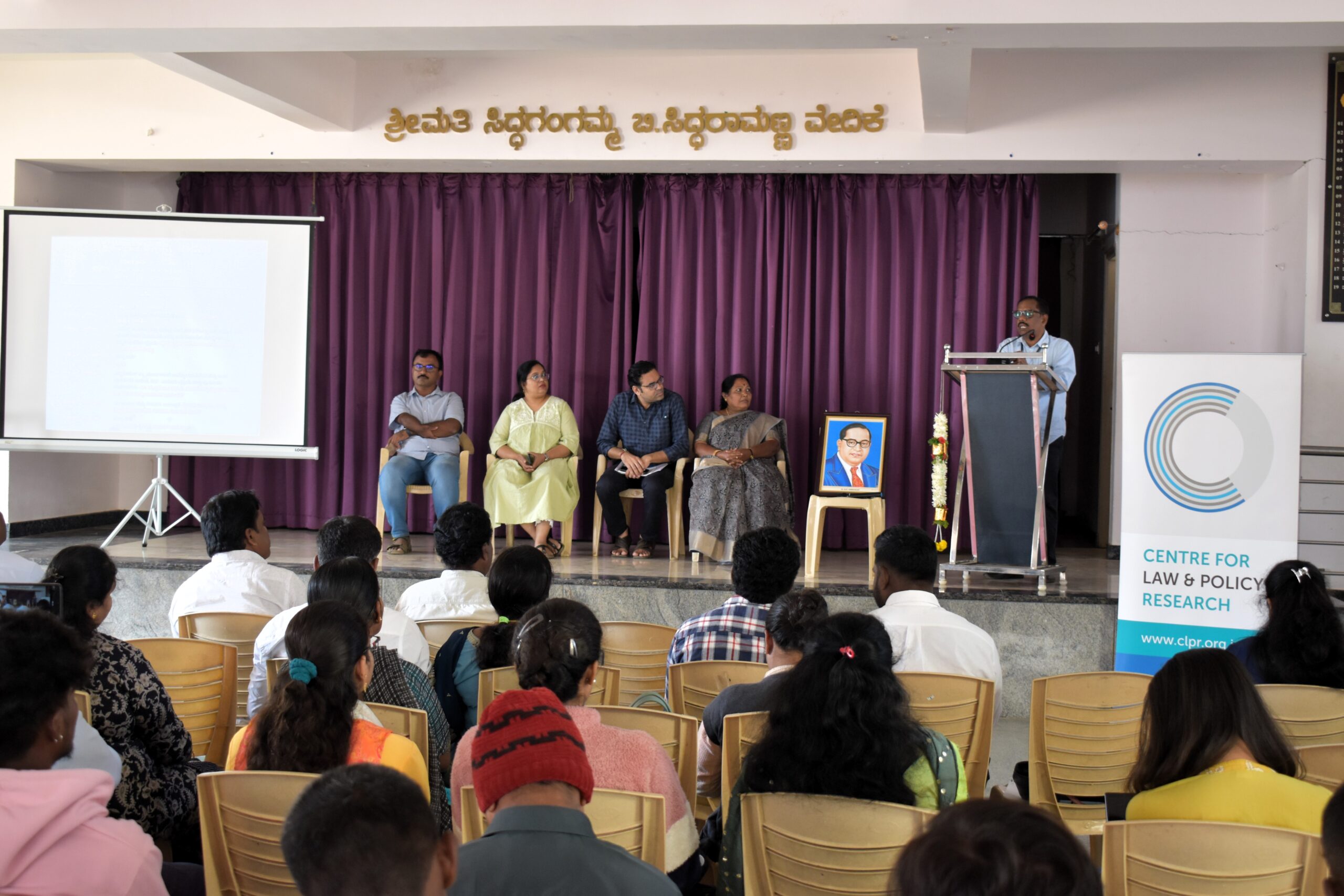
Dr. KB Obalesha then extended a warm welcome to all participants noting the arrival of individuals from across Tumkur. He contextualised the work undertaken by CLPR in strategic litigation across High Courts and the Supreme Court on issues of Dalit rights and other marginalised groups. He then explained the historical significance of the contributions made by Dr. Ambedkar and the importance of fighting for justice against caste, especially in the context of caste atrocities and manual scavenging. He also highlighted pervasive caste practices and atrocities committed in Tumkur and the limiting impact of existing legal frameworks.
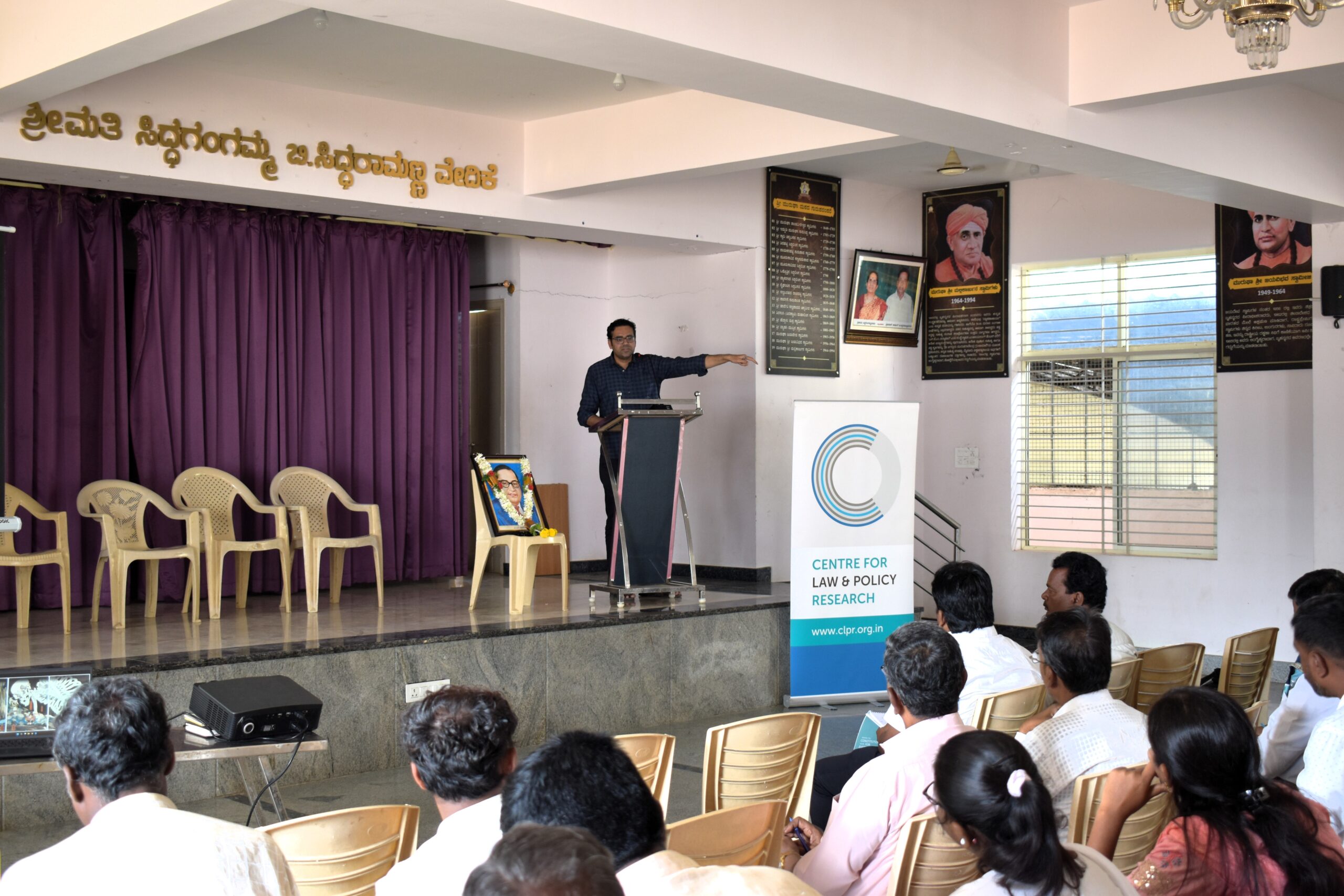
Mr. Siddharth led the first session on the 1989 PoA Act. He shared his journey from working on Dalit rights to his work together with Dr. Obalesha and emphasized the importance of the gathering in asserting oneself against perpetrators of caste violence. He outlined provisions of 1989 PoA Act that dealt with procedural mandates and duties on State instruments in matters of caste atrocities. One of the examples he shared was the obligation of SP to reach the spot and direct filing of FIR upon being notified of an atrocity. He acutely observed that the obligation to file an FIR on issues of caste atrocities is not victims but on the State. In the open discussion that followed, many Participants brought forth their experiences of the bad faith practice of false counter cases being filed by perpetrators to discredit the allegation of caste atrocities. Dr. Obalesha encouraged the participants to have faith in the judiciary and strengthen their cases and not be deterred by such threatening tactics adopted by dominant caste groups. This session was followed by another song by associates of Thamate.
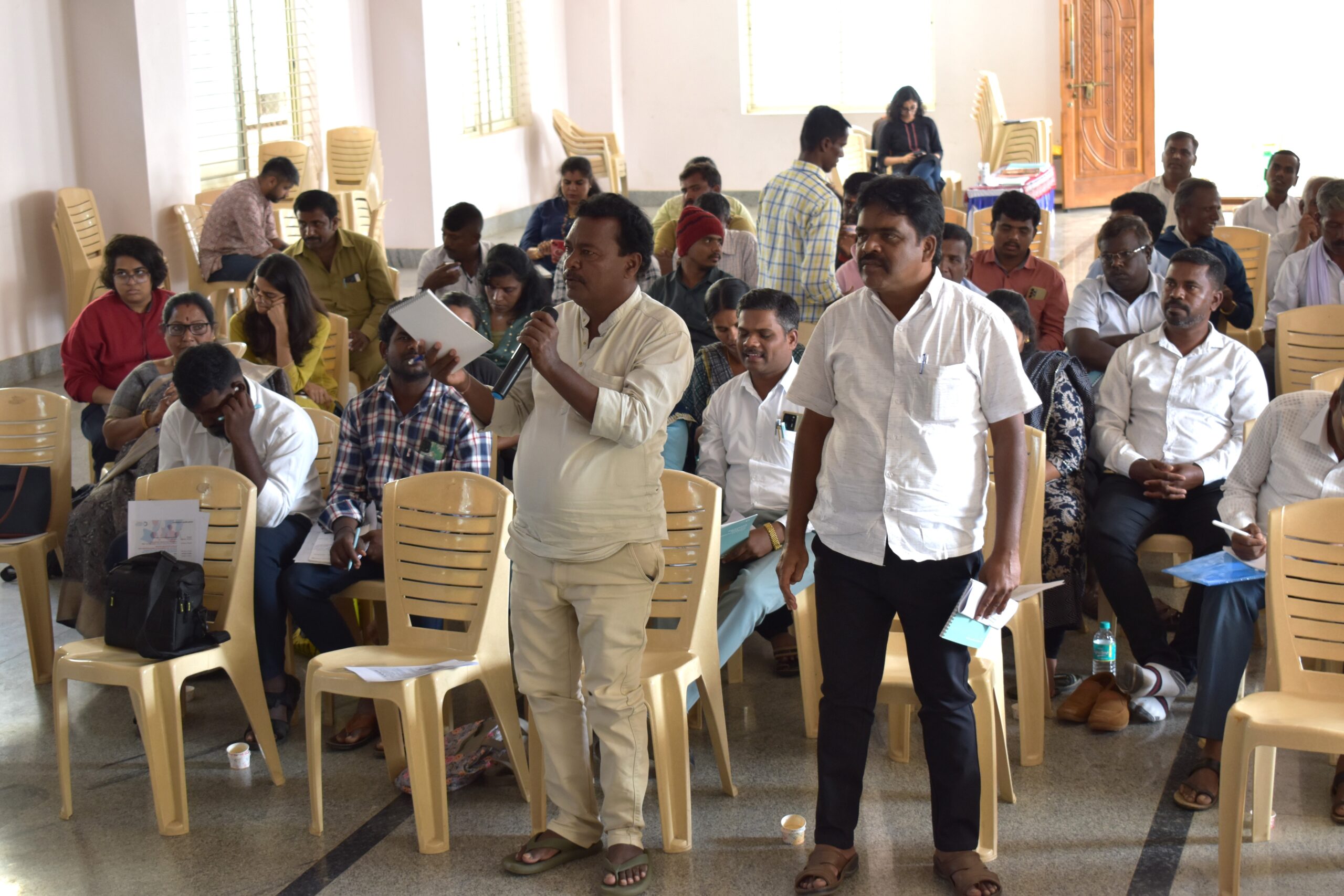
The next session was led by Dr. Chandrashekhar who began with discussing the history of manual scavenging and the development of protective legal framework in Karnataka. He sharply noted that the necessity lies at the heart of sensitising perpetrators of caste crimes rather than those victimised by the practice, and it is only through collective action we can enforce the law and put an end to this exploitative practice. He noted that the persistence of manual scavenging despite such legislations are a cause for concern, and illustrated the relevant constitutional and statutory provisions related to manual scavenging. Through statistical data and evidence, he discussed at length the challenges faced by the community, and the constraints in realising the rehabilitative measures promised to persons engaged in manual scavenging.
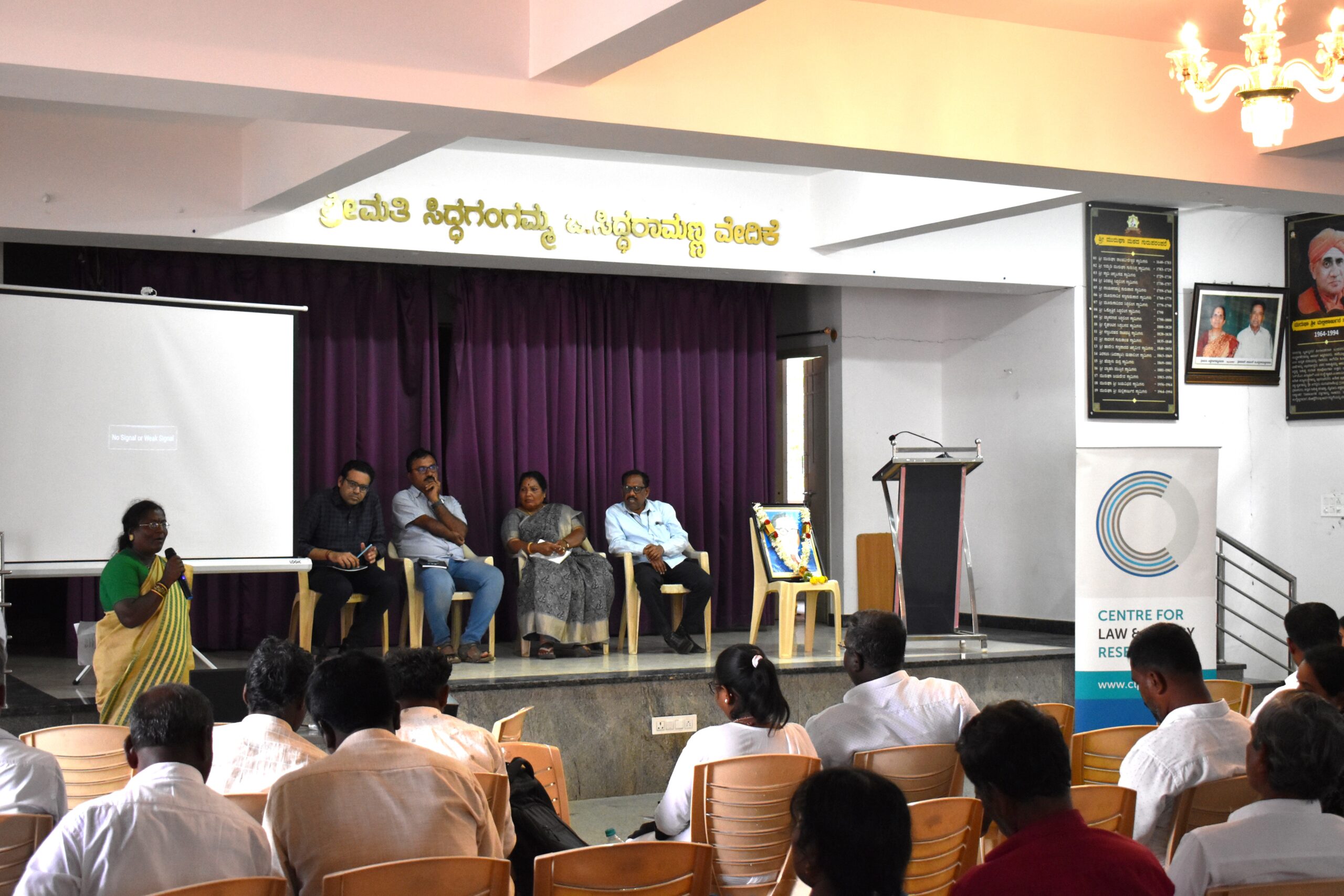
This was followed by a session by Ms. Padma who assertively spoke about caste practices and the inherent notion of shame that is attached to labour undertaken in manual scavenging. She extensively discussed how humiliation in pervasive forms, such as sight, smell and taste is practiced against marginalized caste groups. She highlighted the importance of alternative employment to those engaged in manual scavenging and stressed for better implementation of existing laws to ensure this. Dr. Obalesha called for more KYRE sessions to be organized across Karnataka to mobilize and educate people about their rights and the participants enthusiastically agreed.

The session closed with Adv. Payal Gaikwad from CLPR delivering the Vote of Thanks.
The session was held as part of the Constitutional Defenders Fellowship which is supported by the Azim Premji Philanthropic Initiatives (APPI).
